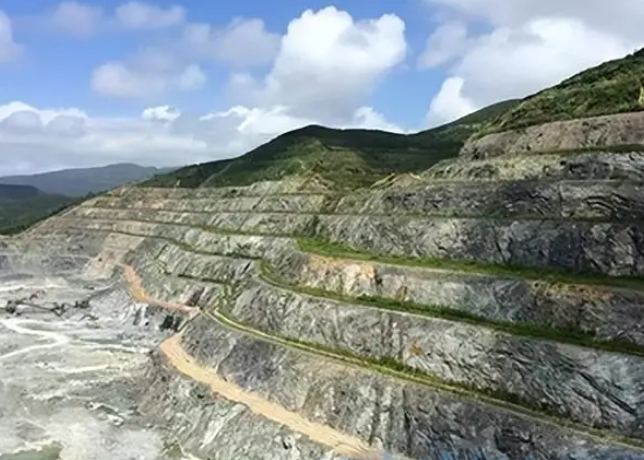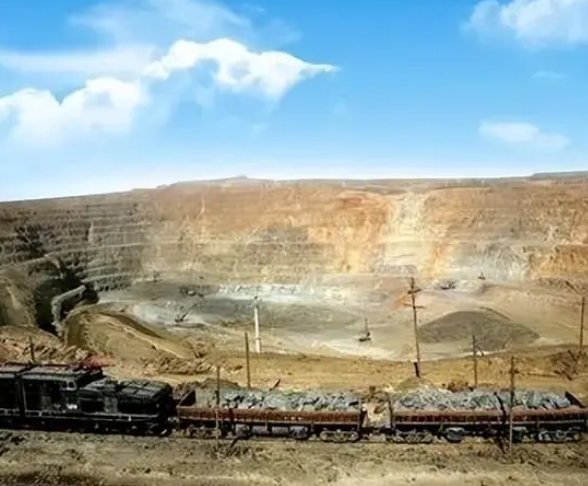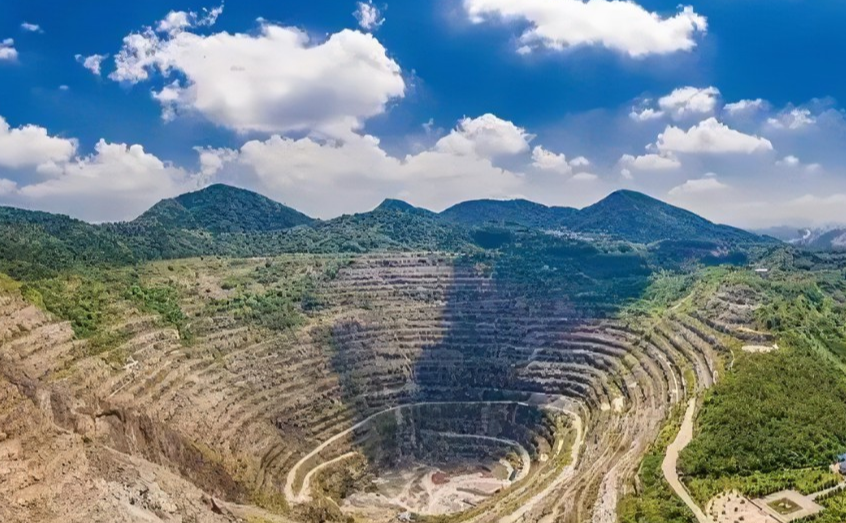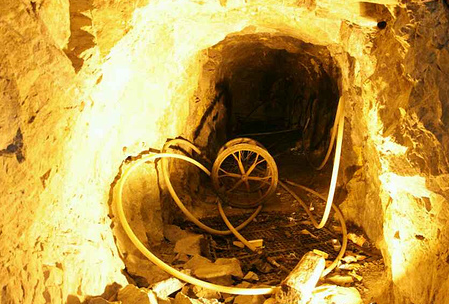The main problems and prevention measures of mine ecological restoration
Under the background of ecological civilization construction and dual-carbon goal, ecological restoration of mines has become a research hotspot. Based on the analysis of the main problems in mine ecological restoration in China, the corresponding solutions are put forward. It is found that the related concepts of mine ecological restoration are various, but the connotation is similar, and green development is the absolute principle; Affected by factors such as the failure of the supervision mechanism, the misunderstanding of the mine ecological restoration project, and the difficulty of promoting the new technology, China's mine ecological restoration has not paid the old account, the new account is owed, and the failure project is common; In order to promote the ecological restoration of mines in China, it is necessary to strengthen the basic theoretical research, promote the implementation of supervision mechanism, and implement new technologies such as mining and restoration in production mines.
The significance of mine ecological restoration
Mining may bring about ecological and environmental problems such as soil erosion, landslide and desertification. The abandoned industrial and mining land also has many bad soil physical and chemical properties, especially the high content of heavy metals in the soil, and the pollution process of some heavy metals in the soil system is long-term, hidden and irreversible, which often has a serious impact on the ecological environment of the surrounding area. Therefore, the ecological restoration of abandoned mines has important ecological significance. Mine ecological restoration is not only one of the important steps to alleviate desertification and soil erosion, but also one of the important means to tap its social and economic value through mine ecological restoration and transformation. At present, the selection of tourism development mode after ecological restoration has occupied more than half of the mine restoration cases, so considering economic factors has a high restoration value. In practice, the transformation of the abandoned site is mainly to add some humanistic landscape elements on the basis of its unique natural landscape and its own land resources, and at the same time, it is selected to transform into urban park, wetland park, ecological park, mine relic park and other tourist and leisure scenic spots. At present, the concept of ecological restoration at home and abroad mainly regards restoration as the state before destruction, requiring the restoration of forests, water bodies and farmland to the original state, and controlling the deposition of toxic and harmful substances and soil erosion. Ensure that the water table remains at its original level and the surface shape remains unchanged; Keep topsoil in place; Pay attention to the prevention and control of acidic substances and harmful and toxic substances; Prevent mine tailings from landslide and other secondary geological disasters.

1. Principles to be followed for mine ecological restoration
Mine ecological restoration is not only the restoration of damaged terrain, simple greening and so on. Mine ecological restoration is a systematic project, which is a complex project integrating damage investigation, design planning and construction. In order to achieve the result of restoring the damaged ecology, it is necessary to have a deep understanding of the connotation of the restoration goal. At the beginning of the planning, it is necessary to clarify the use of land use after restoration, the ecological structure and the ecological function that should be realized. Therefore, the goal setting of mine ecological restoration needs to comply with the following six principles: respect for nature, people-oriented; Adapt to local conditions and conform to the overall regional planning; Safe, efficient and sustainable use; Priority should be given to ecological and environmental benefits, and attention should be paid to economic benefits. Priority is given to restoring cultivated land, grassland and forest land; End treatment is combined with source and process control.
2. Strengthen the basic research of mine ecological restoration
The practice of mine ecological restoration for more than 40 years shows that the restoration theory lags far behind the practice, and many restoration cases fail due to lack of scientific restoration, which shows that there is a decoupling phenomenon between theory and practice. In order to repair the ecological environment damage caused by mining, many places have carried out spontaneous restoration and utilization of the damaged land and ecological environment. For densely populated areas with rapid economic development, mine ecological restoration is often promoted faster. However, the basic theory of this field and the principles of restoration technology still need to be deeply studied to support and promote the development of this field.
In the face of complex mining environmental damage problems, restoration methods and technologies need to be innovated, enriched and promoted, and the connotation of scientific restoration should be enriched from the scientific, different, advanced and economic aspects of technology, so as to balance the restoration benefits with funds and policy investment. Although there are many kinds of ecological restoration technologies, there are often some basic common technologies for ecological restoration, which is also the key to ecological restoration. Water is the source of life, soil is the basis of life, and plants are the root of life. Therefore, water, soil and plants are the three major elements of ecological restoration, and the restoration technology centering on these three major elements is the common core technology, namely, geomorphic remodeling, soil reconstruction and vegetation restoration. The interconnectedness of these three key technologies is shown in Figure 2.
(1) Geomorphic remodeling refers to the reconstruction of a new landform in harmony with the surrounding landscape by taking measures such as orderly discharge and land reshaping, aiming at the landform characteristics of the mining area, combined with mining design, mining technology and land damage methods, so as to eliminate and alleviate factors affecting vegetation restoration and land productivity improvement to the maximum extent. In general, Geomorphic remodeling is the basis of land quality restoration in mining area.

(2) Soil reconstruction is aimed at soil restoration or reconstruction of damaged land in mining areas. Appropriate reconstruction technology and engineering measures as well as physical, chemical, biological and ecological measures are adopted to reconstruct a suitable soil profile, restore and improve the productivity of reconstructed soil in a relatively short period of time, and improve the environmental quality of reconstructed soil [6].
(3) On the basis of geomorphic remodeling and soil reconstruction, vegetation restoration is based on different types and degrees of land damage in mines, comprehensive climate, altitude, slope, slope direction, surface material composition and effective soil layer thickness, etc., for different types of damaged land, the selection of pioneer plants and suitable plants and other vegetation configuration, planting and management are carried out to ensure the sustained stability of the restored plant community.
It has become a common understanding to learn from nature to reshape landform, reconstruct soil and restore vegetation, but how to define and realize the imitation of natural restoration is still a difficult problem and bottleneck to be solved. At present, there are also many cases due to the imitation of only part of the original ecological environment structure or the imitation is not in place, resulting in unreasonable reconstruction of the landscape, low soil productivity, vegetation population allocation and so on. The author believes that ecological restoration is a gradual and dynamic process, and the restoration scheme should be planned systematically and scientifically according to the original landform characteristics of the mining area, from the aspects of basin connectivity, landscape connectivity, ecological structure stability and so on. Therefore, the basic theories of the three key technologies of geomorphic remodeling, soil remodeling and vegetation restoration should be deeply studied to achieve a major breakthrough in the theory and practice of imitating nature restoration as soon as possible.
2.3 Improve the supervision mechanism and implement it
As mentioned above, the Regulations on the Protection of Mining Geological Environment and the Measures for the Implementation of the Regulations on Land Reclamation all put forward requirements for the monitoring and supervision of mine ecological restoration. However, due to the involvement of mining enterprises, the public, restoration enterprises and other multi-party interests [8], the implementation has not been in place so far. In 2021, the Ministry of Natural Resources plans to complete the inspection of the damage pattern of the national abandoned mines, after which the ecological restoration plan will be formulated and the treatment results will be monitored annually. At the same time, combined with the reform of mining rights, it is planned to strengthen the supervision and management of ecological restoration in production mines, and normalize the annual report system.

Some provinces and cities are trying to establish a big data platform for the supervision of mine ecological restoration to gradually implement the supervision mechanism. If the mechanism operates normally, the old account of ecological restoration will be completed year by year, and the new account will not increase or increase less, and the monitoring and supervision of mine ecological restoration with the help of big data platform is a practical way. Therefore, in the new round of territorial space planning and territorial space ecological restoration planning, self-examination is required to establish a database in the county, and the ecological restoration work will fall to the map spot, including the ecological restoration work in mines. For example, the big data platform for territorial ecological restoration in Shaanxi Province can realize the unified information platform, unified portal and unified management of geological environment monitoring, management and restoration, land reclamation, development management, comprehensive management of territorial space, restoration of mountain, water, forest, farmland, lake and grassland system in Shaanxi Province. At the same time, the implementation of the annual report system of mine ecological restoration is also crucial, and the future focus is to improve its reporting, approval and acceptance system, clarify responsibilities and time requirements of each link, and formulate corresponding incentives and punishment measures.
2.4 Strengthen the supervision and management of production mines, and vigorously promote the technology of mining while repairing
The old account of mine ecological restoration is fixed, according to the unified arrangement of the Ministry of Natural Resources, it is planned to be completed during the "14th Five-Year Plan" period, and the supervision and management of subsequent production mines is the key. If you want to make production mines do not owe new debts, the implementation of the concept of mining while repairing is the key.
In 2013, the author proposed the concept, connotation, basic principle, technical classification and key technologies of "reclamation while mining" in Jinggong Coal Mine [8-9]. Professor Y. P. Chugh, former director of the Central and Western Branch of the National Mining Land Reclamation Research Center of the United States and Professor of Southern Illinois University, also systematically introduced the results in the paper "Mining and recovery Technology of coal subsidence in China" in 2017, that "in the reclamation of coal subsidence area, mining and recovery technology is an advanced technology, which is in a leading position in the world". It is also named CMR-UM(Concurrent Mining and Reclamation for Underground Mining) technology [10]. In 2020, in the article "On the ecological Environment of Coal Mine Area" [11], the author further improved the concept, principle and technical system of the integration of coal mine mining and restoration, and redefined the concept of "mining and restoration" of coal mine ecological environment as follows: In view of the ecological and environmental damage caused by coal mining process, closely combined with the mining process, a variety of measures are taken simultaneously to reduce the ecological and environmental damage and control simultaneously, that is, repair while mining, so that it can be used and coordinated with the local ecosystem. The ecological environment of coal mine area "recovery while mining" is based on the concept of "source and process control", rather than the concept of "end management", which is characterized by synchronous management in the mining process. The "recovery" in the concept of "recovery while mining" includes both the narrow "reclamation" and the concept of "restoration". Its core purpose is to timely restore and control the damaged ecological environment, alleviate the contradiction between the exploitation and utilization of mineral resources and environmental protection, and ensure the development of mining activities in the direction of sustainable, circular and green. Relevant studies have shown [9] that using the mining and recovery technology to control the subsidence area of coal mining can restore 10% ~ 40% more land. In the future, the mining and recovery technology of Jinggong coal mine will seek a breakthrough in reclamation time, reclamation elevation and reclamation technology in practice. In the aspect of open pit mining, it is emphasized that the integration process of mining, drainage and complex must be implemented, internal drainage as early as possible, boundary management, and reducing the area of external drainage and excessive mining pit.

On-line monitoring system for slope stability
1. Slope management measures
The main work of slope treatment is to stabilize the slope. The task of this process is to remove dangerous rocks, reduce the slope and cut the slope, form the horizontal step of the cliff without steps as far as possible, and reduce the slope slope below the safety Angle to eliminate the hidden danger of collapse. After that, the slope that has been treated will be greened to further maintain its stability.
2. Tailings treatment measures
The tailings which occupy a large amount of land are redeveloped to increase the comprehensive utilization rate of tailings; The development of tailings with large consumption, less investment and sales to achieve the resource utilization and commercialization of scale management and multi-variety development makes it a waste into treasure and truly becomes a part of economic commodities. It is also necessary to treat the waste water in the tailings dam to meet the national standard, and realize all reuse and zero discharge of flotation waste water after moderate purification. For the mine with untreated goaf, abandoned roadway and chamber, it is an effective way to discharge tailings from underground goaf.
3. Soil base improvement
The key to ecological damage caused by mining is land degradation, that is, the change of soil factors, that is, the deterioration of physical and chemical properties of the soil in the abandoned land, the loss of nutrients and the increase of toxic and harmful substances in the soil. Therefore, soil improvement is one of the most important links in the ecological restoration of mine abandoned land. Measures that can be taken include :(1) off-site soil extraction measures: on the premise of not destroying the soil in the off-site, take an appropriate amount of soil, move it to the severely damaged part of the mine, plant plants on the soil, and repair the damaged soil through the absorption, volatilization, root filtration, degradation, stability and other functions of the plants. (2) Waste land transformation measures Before the topsoil transformation, try to inject mud to wrap the waste residue, and then lay a layer of clay compacted to create an artificial water barrier, reduce the infiltration of surface water, prevent the release of highly toxic elements in the waste residue. (3) Soil fertilizer improvement measures: effective substances are added to improve the physical and chemical properties of the soil, thereby shortening the vegetation succession process and speeding up the ecological reconstruction of the mine wasteland.

4. Phytoremediation of mine heavy metal pollution
Heavy metal tolerant plants can not only withstand heavy metal toxicity, but also adapt to the extreme barren wasteland, poor soil structure and other harsh environment, and some tolerant plants can also enrich high concentrations of heavy metals, so they are widely used in the restoration of heavy metal polluted land. Considering the ecological problems caused by introduction and the adaptability of native plants to local climatic conditions, it is necessary to screen heavy metal-tolerant plants based on local conditions.
5. Restoration of mine water resources
The damage to water in mining is manifested in the impact on surface water and groundwater respectively. The pollution of surface water and groundwater can be removed by constructing constructed wetlands, which can withstand the action of plants and microorganisms. On the other hand, due to the lack of surface water caused by excessive water extraction, the groundwater level has declined, which requires appropriate water diversion, relieve the lack of water pressure, and build a water storage system to gradually solve this problem.
- ABB
- General Electric
- EMERSON
- Honeywell
- HIMA
- ALSTOM
- Rolls-Royce
- MOTOROLA
- Rockwell
- Siemens
- Woodward
- YOKOGAWA
- FOXBORO
- KOLLMORGEN
- MOOG
- KB
- YAMAHA
- BENDER
- TEKTRONIX
- Westinghouse
- AMAT
- AB
- XYCOM
- Yaskawa
- B&R
- Schneider
- Kongsberg
- NI
- WATLOW
- ProSoft
- SEW
- ADVANCED
- Reliance
- TRICONEX
- METSO
- MAN
- Advantest
- STUDER
- KONGSBERG
- DANAHER MOTION
- Bently
- Galil
- EATON
- MOLEX
- DEIF
- B&W
- ZYGO
- Aerotech
- DANFOSS
- Beijer
- Moxa
- Rexroth
- Johnson
- WAGO
- TOSHIBA
- BMCM
- SMC
- HITACHI
- HIRSCHMANN
- Application field
- XP POWER
- CTI
- TRICON
- STOBER
- Thinklogical
- Horner Automation
- Meggitt
- Fanuc
- Baldor
- SHINKAWA
- Other Brands




































































































































